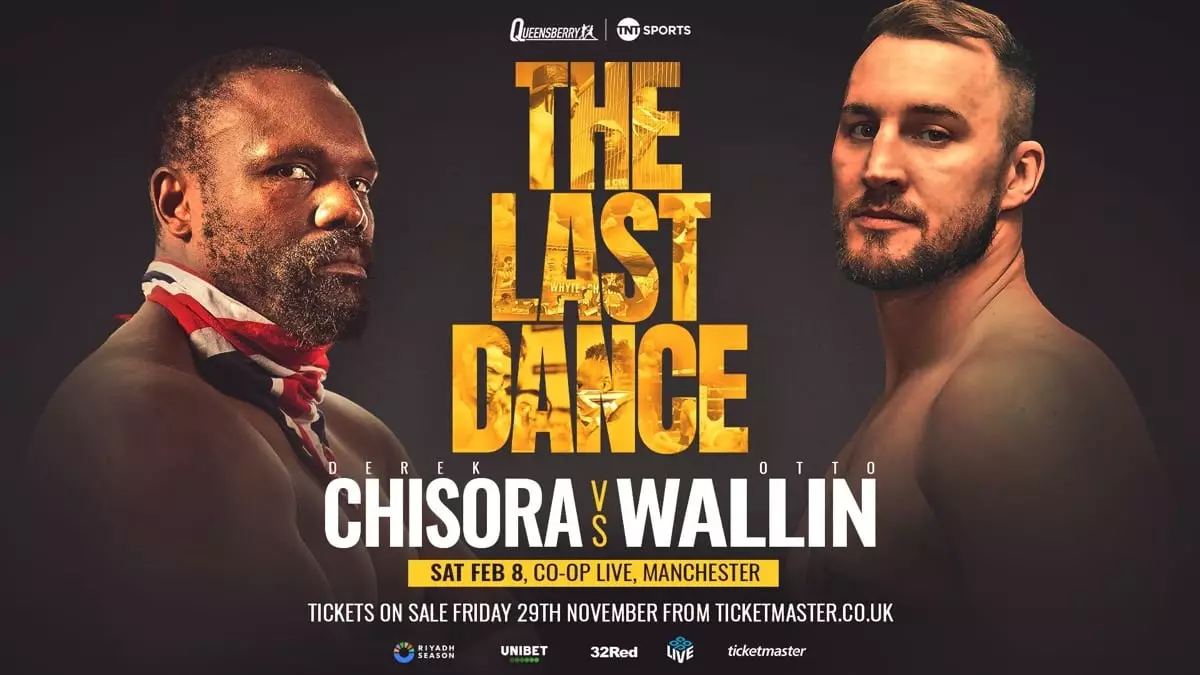As the boxing world gears up for a pivotal heavyweight bout on February 8th at the Co-op Live Arena in Manchester, fans are buzzing about the headliner fight between veteran boxer Derek Chisora and the rising contender Otto Wallin. While Chisora, at 40 years old, carries an extensive record of 35 wins (23 by knockout) and 13 losses, the concerns surrounding his participation in such high-profile fights at this stage of his career have prompted intense debate within the boxing community.
There is no denying Chisora’s experience in the ring. However, many fans express dissatisfaction at seeing a fighter with a significant number of losses still granted headliner status. Critics comment on Chisora’s recent performances, which reflect a fighter who appears to be on the decline, struggling to keep pace with younger opponents. His promotional team seems to prioritize name recognition over competitive integrity, leaving viewers questioning the viability of Chisora’s continuing presence in a sport that increasingly values youth and athleticism.
Replacing an initial match-up against traditional heavyweight Jarrell Miller with the technically proficient Otto Wallin raises eyebrows, too. Wallin, at 34, possesses an arsenal of skills that could pose significant challenges for Chisora, whose style has become more defensive and cautious in recent bouts. By contrast, Wallin’s performance record showcases a promising fighter who, despite a setback against Anthony Joshua, remains a formidable opponent capable of capitalizing on Chisora’s vulnerabilities.
Chisora’s path to this fight is marred by past decisions and matchups that some would deem questionable. While he has racked up wins against aging fighters like Gerald Washington and Joe Joyce, these victories came against individuals well past their primes, prompting questions about how meaningful those accomplishments truly are. His last significant victory against a top-ranked heavyweight occurred six years ago, and since then, his record has largely been built against opponents who pose little threat.
For Chisora, reaching a milestone of 50 professional fights serves as a personal goal that speaks volumes about his desire to remain within the sport’s limelight. However, pursuing that milestone against capable competitors like Wallin risks further tarnishing any legacy he might hope to leave. His remarks about needing to prepare adequately for this matchup indicate an awareness of the challenges ahead. Chisora acknowledges the fight will be difficult, and it is clear he recognizes the significant gap in competition level between Wallin and the men he has recently faced.
The heavyweight division is in a state of transformation, where emerging fighters and seasoned veterans collide. Chisora’s participation in this dynamic landscape is a double-edged sword. While his experience can prove invaluable, it also means that his past performances are scrutinized more intensely. Promoters must navigate the tricky balance of honoring fan nostalgia while ensuring that the sport remains vibrant with fresh talent.
Despite the critiques, Chisora maintains an optimistic outlook and remains adamant about his capability to secure a victory. His strategy seems to center on outlasting opponents rather than dominating or controlling the fight, a plan that may work against less skilled competition but is precarious against fighters who can adapt, like Wallin.
The upcoming fight between Derek Chisora and Otto Wallin serves as a litmus test for both fighters: Chisora’s desire to prove he can still compete at a high level versus Wallin’s ambition to establish himself as a major force in heavyweight boxing. As the boxing world watches closely, the question remains: can age still contend with youth, or will Chisora’s experience serve him in this critical bout? The answers may redefine the paths of both fighters in the times to come.

